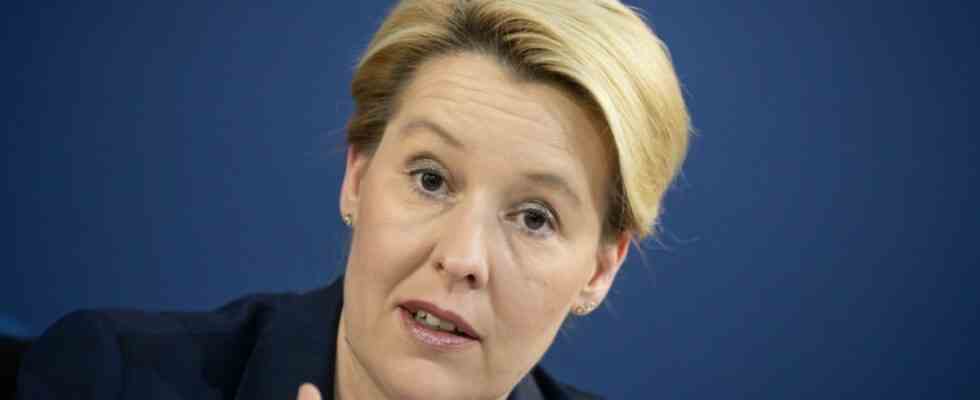On Sunday morning, Berlin’s Governing Mayor Franziska Giffey (SPD) was once again concerned with the Ukraine. But unlike the days before, it should be a meeting without an aftertaste. The Berlin tabloid BZ dedicated its culture prize to the Ukrainian director Maryna Er Gorbach for the film “Klondike”. In her laudatory speech at Berlin’s Kino International, Giffey spoke of a “rousing masterpiece that is very topical”. The last stirring masterpiece was just 36 hours old. It was a masterpiece of counterfeiting.
A video call with the mayor of Kyiv, Vitali Klitschko, was scheduled for 5 p.m. on Friday afternoon. At 6:45 p.m., the Berlin Senate Chancellery then announced via Twitter that the conversation had been broken off. “The course of the conversation and the setting of the topic aroused distrust on the part of Berlin. The conversation was broken off prematurely.”
Since then, state security has been investigating who could be behind the alleged Klitschko, as well as the Berlin IT service center and the cybersecurity operations center. The false conversation is “a means of modern warfare,” Giffey told RBB.
A photo provided by the Senate Chancellery in Berlin shows the video call between an alleged Vitali Klitschko and Mayor Franziska Giffey (SPD).
(Photo: dpa)
False offers of talks, even at the highest political level, are more common; even top politicians fall for it again and again. Canada’s Prime Minister Justin Trudeau called the supposed climate activist Greta Thunberg in November 2020, but the YouTubers Lexus and Vovan were actually behind it. The previous July, the recently re-elected Polish President Andrzej Duda had been taken in by the Russians, who are known for their phone jokes.
A conversation with British Defense Minister Ben Wallace in March of this year was more serious: the caller had posed as Ukrainian Prime Minister Denys Shmyhal and apparently asked strange questions. It was a “pathetic attempt to divide us in difficult times,” said Home Secretary Priti Patel. This is how Western politicians should be ridiculed and insecurity fueled.
The mayors of Vienna and Madrid also fell for the wrong Klitschko
The call to Berlin’s governing mayor was more than just a well-done joke. This indicates that other counterparts had also received such calls in the past week. Madrid’s Mayor José Luis Martínez-Almeida apparently broke off the conversation after just a few minutes because he had become suspicious, according to the mayor’s office in the Spanish capital. On Wednesday, Vienna’s Mayor Michael Ludwig also called an alleged Klitschko, but had no doubts about the authenticity of his telephone partner. “Since no catchy topics were discussed in the conversation, it’s certainly annoying in a specific case, but not a big problem,” said Ludwig.
Apparently, all three conversations had already been requested by email on June 2nd, although the sender had no official ID. Since the beginning of the war, official bodies have also been using this to protect themselves from hackers time and again, so this is not unusual in communication with the Ukrainian government at the moment. In addition, the conversations were video calls and Kiev Mayor Vitali Klitschko was actually seen on the screen.
In the Senate Chancellery in Berlin, it is assumed that they have fallen victim to a so-called deep fake. This technology has now progressed so far that even videos can be manipulated quite perfectly and show supposedly real people. Another possibility is that a real interview with Klitschko was shown and the caller talked about it like a dubbing voice. In any case, the photo published by Klitschko’s Senate Chancellery resembles an earlier interview situation with Klitschko.
Kiev’s mayor himself now relies on a real conversation with Franziska Giffey: “I hope that we will soon be able to make calls via my official channels.”

